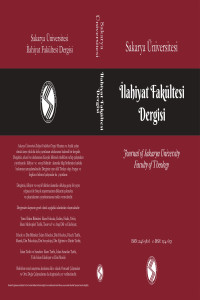Pascal’ın Paradoksal İnsan Görüşü
Pascal’s Paradoxical View of the Human Being
Author(s): Tamer YıldırımSubject(s): Early Modern Philosophy
Published by: Sakarya üniversitesi
Keywords: History of Philosophy; Pascal; Grace; Pensées; Wretchedness; Human;
Summary/Abstract: In what can only be described as a short life of 39 years, Blaise Pascal achieved more than most people could hope to accomplish in two lifetimes. He collected his ideas on psychology and religion after a mystical experience, but he died without being able to compile them into a book. After this experience, Pascal chose to be a polemicist, a pedagogue, and a preacher rather than a philosopher, mathematician, or scientist. Not only did his Thoughts (Pensees) bring new perspectives to the Christian religion, but it is also considered among the best of French literature. One of the central strategies of the Thoughts was to drive the unbeliever to a state of despair and confusion that would lead him to God and faith, using the contradictory philosophies of skepticism and stoicism personified by Montaigne on the one hand and Epictetus on the other. Hence, some of the Thoughts bear a skeptical quality, while others have the spirit of dogmatic stoicism. In fact, Pascal seeks to accommodate both poles. He exalts faith and states that the heart has reasons unknown to the intellect while denigrating the intellect and condemning rational philosophy. Pascal is one of the authors who can and should be re-examined by people in every generation. In his writings, he tries to elucidate man and man's condition in the world, his place in intellectual history and his conceptions of culture and education, the further development of his view of human nature in the light of man's relationship with God, and his famous theory of Pascal's Wager and his insights into the heart. Reflecting on one's existence in the world and having the right attitude towards it is central to every person's life. In Europe, from the beginning of the 18th century, there was a philosophical movement known as the Enlightenment. This wave of thought has had a profound impact on the modern world. For the last three hundred years, the Enlightenment movement has, in one way or another, defined philosophers and philosophical movements that think differently. Pascal was one of the philosophers who did not get caught up in the strong fluctuations of this movement. Enlightenment almost sought to make life itself a science. This is where much of Pascal's insight lies. Because there are so many things about life that science cannot account for. Pascal seems to try to unify them. He brought his genius and passion not only to mathematics and science but also to philosophy and endeavored to come to a theological conclusion. In all these disciplines, Pascal was fortunate enough to reveal his intuition. Today, if a middle ground is to be found between the Enlightenment's worship of reason and postmodernism's emphasis on freedom and self-governance, it may be helpful to explore Pascal's thoughts in depth to a certain extent.
Journal: Sakarya Üniversitesi İlahiyat Fakültesi Dergisi (SAUIFD)
- Issue Year: 25/2023
- Issue No: 48
- Page Range: 317-330
- Page Count: 14
- Language: Turkish

